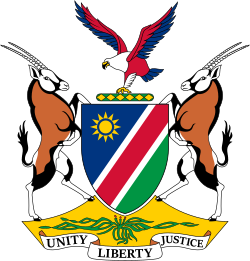This article relies largely or entirely on a single source .(July 2025) |
 |
|---|
The Namibia Independence Party, [1] initially known as the National Independence Party, was a political party in Namibia. In 1975, the NIP joined the Turnhalle Constitutional Conference. Later, the party joined the Namibia National Front.
In 1981, the party's name was changed to the Namibia Independence Party.